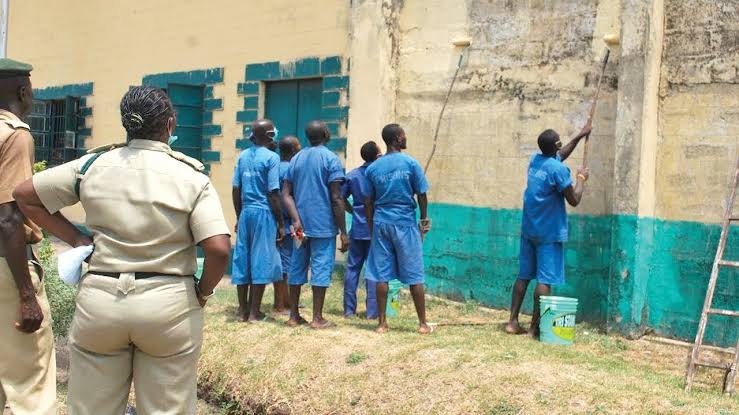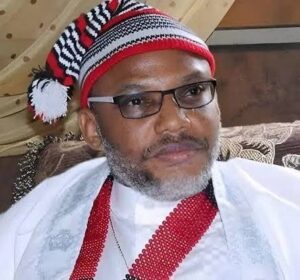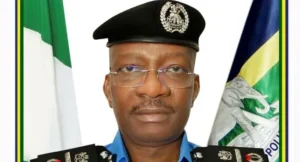
Why Nigerian Governors Hesitate To Sign Death Warrants
In the shadowed corridors of Nigeria’s correctional facilities, over 3,800 inmates have been sentenced to death. As of July 2025, the number of prisoners on death row has climbed to 3,833, up from 3,590 in September 2024. Yet executions remain rare, not because the courts are silent, but because the governors are.
While courts continue to sentence convicts to death for crimes such as homicide, armed robbery, and treason, governors across the country have largely refrained from authorising executions, leaving thousands of inmates in limbo.
In Bauchi State, 37 inmates (36 men and 1 woman) await execution, but no governor since 1999 has signed a death warrant
Despite being constitutionally empowered under Section 212 of the Nigerian Constitution to sign death warrants, most state governors have refrained from signing.
Their reluctance is rooted in a complex web of moral, religious, legal, and political considerations that have created a de facto moratorium on capital punishment.
In the last five years, no Nigerian governor has signed a death warrant for execution, according to multiple reports from the Nigerian Correctional Service (NCoS) and legal analysts. The last known executions occurred in 2016, under Governor Adams Oshiomhole of Edo State, when three men were hanged for armed robbery and murder.
For many governors, the decision is deeply personal. Nigeria’s two dominant religions, Christianity and Islam, both emphasise forgiveness and the sanctity of life. In states like Kaduna, Kano, and Katsina, investigations reveal that religious convictions often weigh heavily on governors’ consciences, making them hesitant to sign death warrants after convictions by competent courts of jurisdiction.
Nigeria’s legal system is frequently criticised for delays, weak investigations, and inadequate legal representation. These flaws raise the specter of wrongful convictions, a risk no governor wants to bear. Signing a death warrant in such a system could mean endorsing irreversible injustice.
Besides, capital punishment is politically charged. Governors fear alienating voters or interest groups opposed to the death penalty. Human rights organisations and religious bodies have also been vocal, warning of protests and reputational damage. For many state executives, the political cost outweighs the legal obligation.
The lengthy appeal process further complicates matters. Death row inmates can appeal to the Court of Appeal and the Supreme Court, often dragging cases out for years. Governors are wary of signing warrants before all legal avenues are exhausted, fearing both legal and moral repercussions.
SentinelNewsNG.com reports that Nigeria’s commitment to international human rights treaties, many of which oppose capital punishment, adds another layer of hesitation. Some governors simply oppose the death penalty on ethical grounds, believing in the sanctity of life regardless of the crime. They prefer the convicts to die naturally at the correctional centres.
However, opinions are sharply divided about the governor’s reluctance in signing death warrants.
In Kano, some residents argue that the governors’ inaction renders the death penalty provision meaningless, while others insist it remains a necessary deterrent.
Professor Yahaya Bunkure of Bayero University Kano (BUK) supports the constitutional provision but calls for an amendment to compel governors to act. “Mercy and justice should not just be options, they must be obligations,” he said.
Abubakar Malam of Unguwar Wambai suggests that courts should be allowed to impose life imprisonment or fixed terms instead, arguing that governors’ powers should be conditional.
Abdulsalam Mohammad, a resident of Tarauni, lamented that governors have failed to sign death warrants for over two decades. He proposed a constitutional amendment requiring governors to act within three months of a court verdict.
Paul Israel of Sabon Gari believes that notorious criminals should be executed to prevent prison overcrowding and reduce crime. He calls for mandatory enforcement of death sentences.
Others, like Friday John, advocate for abolishing the death penalty altogether, citing global trends and the risk of executing innocent people.
The result of governor’s hesitation to sign death warrants is a growing population of condemned inmates living in uncertainty. Prisons are overcrowded, justice is delayed, and the constitutional role of governors remains contested.
In the South-South region, respondents from Cross River, Akwa Ibom, and Rivers States said governors fear “soiling their hands with blood,” especially given the political implications.
Linus Obogo, spokesperson to Governor Bassey Otu of Cross River, called for a constitutional review, stating:
“The governors, as humans, willingly think of the pain of the victims’ families, and as such, will not want to sign the warrant. I think the responsibility should be left to the judges immediately judgements are passed.”
He questioned the logic of assigning such a grave responsibility to governors who may not have attended the trial or be familiar with the fairness of the proceedings.
In Katsina State, lawyer Abdullahi Muhammad echoed the call for change, noting that since Nigeria’s return to democracy in 1999, very few governors have signed death warrants. He argued:
“Just remove the governor’s consent on the issue of whether the warrant should be signed to execute the convict or not.”
Similarly, in Akwa Ibom, legal practitioner Eyibio Okon emphasised that the law does not compel governors to act:
“The law is there, but then, it does not have any compelling provisions that the governor must sign a death warrant the moment a defendant is sentenced to death.”
He attributed their reluctance to moral concerns and the absence of a time-bound legal requirement.
Not all voices call for restraint. Musa Abdullahi of Hotoro Quarters opposes abolishing the death penalty and urges governors to fulfill their statutory duty:
“Failing to apply the law in cases of treason, homicide, and armed robbery could have repercussions. The death penalty serves as a deterrent to potential offenders.”
In Rivers State, Favour Ruben, former vice chairperson of the Labour Party, acknowledged the complexity of the issue: “They may be reasoning that killing their citizens may not be the best, but giving them ample opportunity to change.”
Still, he affirmed the value of capital punishment: “If that will reduce the level of criminality, then it is better.”
However, Ruben also stressed the need to address root causes of crime, particularly youth unemployment: “If there are jobs, crime will reduce.”
Senior Advocate of Nigeria Mba Ukweni believes governors’ hesitation is personal, not policy-driven:
“There is no law that encourages them to do so. They just feel that they should not get their hands soiled with someone’s blood.”
He also pointed to the committees on prerogative of mercy, headed by state attorneys general, as key players:
“They are the ones who should go to the prisons to know those who should be recommended for mercy and those who should be recommended for execution.”
Without their input, he argued, governors are left to make decisions in isolation.
McPhalane Ejah, country director of the International Training Research and Advocacy Project, emphasized the philosophical foundation of the death penalty:
“Since humans could not give life, he who takes life should also pay with his life.”
Yet he acknowledged the need for reform: “All we need to do is look at that provision again and see if we still need it or if it is an abuse of power by the governors.”
As Nigeria grapples with the ethical, legal, and political dimensions of capital punishment, the debate continues to evolve. Whether through constitutional amendment, judicial reform, or public advocacy, the question remains: Who should bear the burden of life and death in a modern democracy?
However, the refusal of Nigerian governors to sign death warrants has far-reaching implications for public safety, justice delivery, and prison management. Former Chief Justice Bello warned that governors’ reluctance to authorize executions contributes to the perpetuation of crimes in society.
Legal experts argue that the death penalty serves as a deterrent, especially for heinous crimes like armed robbery, murder, and treason. Without enforcement, criminals may feel emboldened.
Qudus Alalafia, a lawyer, noted that the politicisation of death warrant approvals undermines the finality and credibility of judicial processes.
Victims and their families may feel justice is delayed or denied, leading to frustration and distrust in the legal system.
The lack of a time-bound mandate for signing death warrants creates a legal vacuum, allowing governors to indefinitely delay executions or commutations.
SentinelNewsNG.com reports that the development has led to calls for constitutional amendments to either empower judges or set deadlines for executive action.
However, the refusal to sign death warrants has created a legal bottleneck, weakened deterrence, and strained Nigeria’s correctional system. While some advocate for abolition, others call for reform to ensure justice is both swift and fair.
- Flooding: Lagos Govt Warns Lekki, Ikorodu, Ajegunle Residents To Relocate
- Adeleke Invites APC To Davido’s Wedding In US
- Doyin Abiola, Journalism Icon, MKO’s Wife, Dies at 82
Share your story or advertise with us: Whatsapp: +2348033202396 Email: sentinelnewsng@gmail.com










